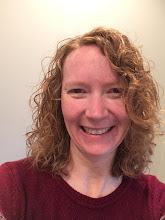When the Black Lives Matter started a few years ago, I had a hard time with it. I agree with the sentiment, but it felt too narrow, too restrictive. After all, racism isn’t directed only toward Blacks; in my community, Hispanics tend to get the short end of the stick. And don’t forget Asians, Arab-Americans, or Native Americans. Not to mention the same discriminatory behavior toward LGBTQ+, Christians, Muslims, Jews, atheists, women, etc.
But I think I’m starting to get it.
Through the patience and courage of a lot of people, I’m starting to understand. A long-time friend, Jayrod Garrett, is someone to whom I’ve always felt safe asking legitimate questions as I’ve tried to understand an experience different from my own. Great books like Black Like Me by John Howard Griffin, All American Boys by Jason Reynolds and Brendan Kiely, and Ghost Boys by Jewell Parker Rhodes have helped me recognize covert behaviors that are offensive. But the reason I love these books is because the authors treat the characters (real and imaginary) on both sides with such compassion that they never condemn the people, only the belief system.
And then there are the posts and articles of support and solidarity following recent events with George Floyd. And many of these perspectives and explanations are what have helped me understand the true sentiment behind Black Lives Matter. I wish I could cite every source that has influenced me, but it’s been a compounding effect over the course of two weeks. I’ll do the best I can.
I’ve seen a list posted by a couple of people now explaining the effect of White Privilege by listing victims of People of Color who have been killed by doing simple, everyday tasks.
A family member of an acquaintance (that I can’t find the post for now) designed a t-shirt that has a black person and a white person holding hands. The text reads something like, “I will never understand your experience, but I will always walk by your side.” (Not a perfect quote, I’m sure.)
The Associated Press sponsored an article by Cliff Brunt and Gary Fields highlighting the struggle for black police officers because they are straddling two different worlds that they are highly committed to, but neither world really accepts them. (https://www.ksl.com/article/46761535/black-cops-feel-pain-of-floyds-death-duty-to-their-uniform)
Melanie Cleverley Morrill posted a photo that clarifies that Black Lives Matter does not mean other lives do not matter.
And Sherrie Lynn Clarke made an analogy to raising her own children. They all need her help, sometimes at the same time. So how does she decide whom to help first? The one who needs her the most at that moment.
And it started to click for me. Black Lives Matter isn’t about focusing on just one race and ignoring all the rest. It’s just the group that needs the most attention at this moment in time.
Why? I don’t know. I have some ideas and thoughts, but it could be any or all of them. But does it really matter why? Because whatever we learn and apply now during the Black Lives Matter movement ultimately benefits all humanity anyway.
So in the spirit of President Brad Mortensen’s highly vulnerable public post at Weber State University, I offer an apology.
First of all, I apologize for any inadvertent or covert comment or action I may have made that was offensive to anyone’s race, gender, sexual orientation, or religious belief.
As a teacher, I work hard to create an environment of acceptance and respect for all of my students, and I apologize if I have ever made a student feel unsafe in my classroom, especially if it stemmed from being a member of a “group” that they felt I did not approve of.
And mostly, I apologize for not doing enough. My natural tendency when a problem seems big and overwhelming is to step away from it. I realize the problem still exists, but I get complacent and pretend like the problem isn’t as big as I first thought. I have definitely been guilty of that attitude regarding racism.
So why don’t I do more?
Fear. That’s it.
I believe the story when I hear about an individual’s discriminatory experience, but I don’t actively seek the opportunities to invite those stories because I’m afraid I won’t be able to empathize “appropriately.” I write novels, but I don’t include people of color because I’m afraid I can’t write them correctly. I tell my students to educate themselves and get more involved, but I don’t follow my own advice because I’m afraid it may take time away from something else I’m interested in. I don’t hang signs or protest or otherwise make public declarations for fear of how it reflects on me as a neighbor, a teacher, or a parent. And I also fear how it would affect my children.
But I realized something during all this soul-searching. I realized that the best example I can give my boys is that their mother was willing to sacrifice to make the life of someone else better. So I make the commitment to seek the stories and support the public efforts despite any personal discomfort.
Although I’ve been privately upset since the death of George Floyd, I’ve been publicly silent. But now is not the time for silence. I want my voice counted among the many. I believe most police officers are good. But I also believe many have racist beliefs that are heightened at times of stress. And it’s past time to draw the line.
So for the first time in my life, I declare #BlackLivesMatter.

Very nice, Heidi.
ReplyDelete